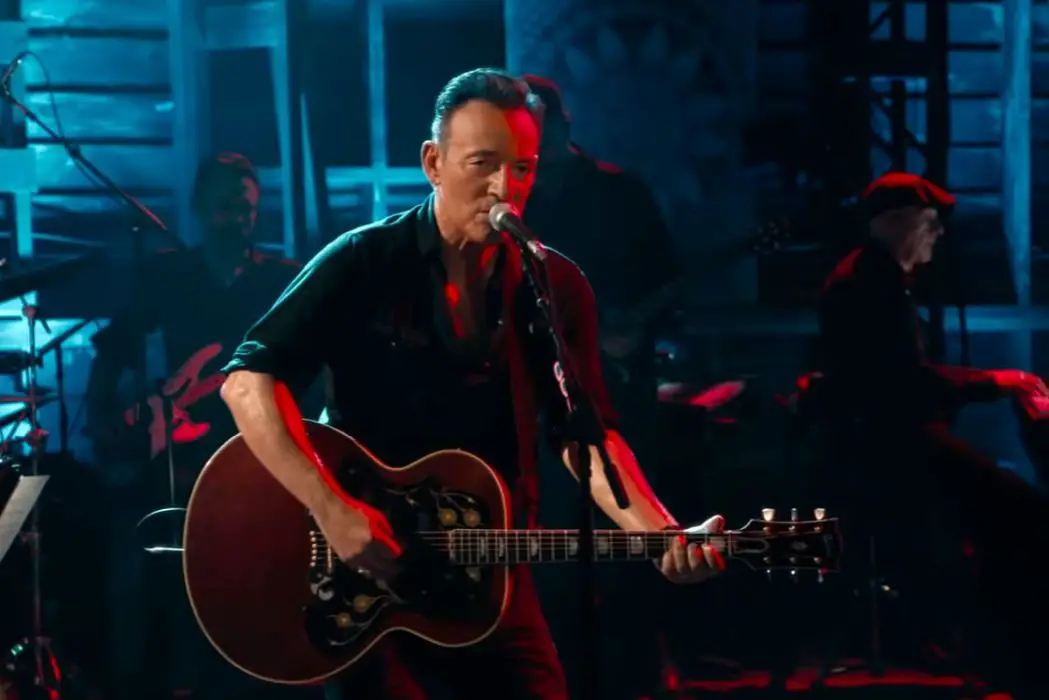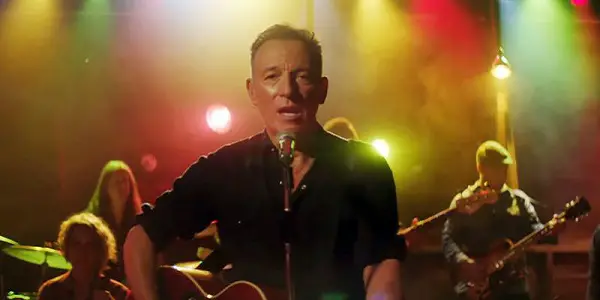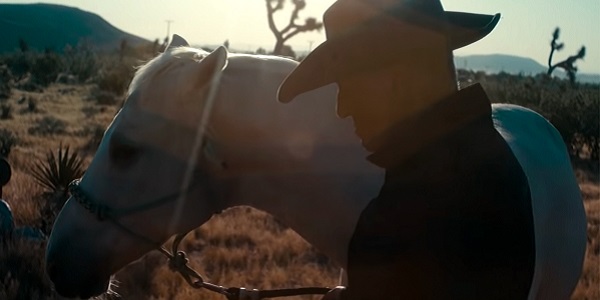WESTERN STARS: Simply Springsteen

Lee Jutton has directed short films starring a killer toaster,…
Bruce Springsteen is one of the great storytellers of our time, a poet laureate for the proletariat whose work has consistently highlighted the lives of the forgotten and forlorn in this country. The protagonists of his songs do not boast about having glamorous lifestyles or boatloads of cash, but instead contemplate what it’s like to spend your life traveling the dusty, lonely roads in search of any kind of satisfaction.
That Springsteen has risen from his humble roots to become an obscenely wealthy superstar on the strength of his storytelling has not altered the stories he tells in any discernible way; rather, it has only changed the methods he has at his disposal to tell them. Indeed, at the age of 70, one could almost say Springsteen is becoming more experimental — if not in content, then at least in form.
In recent years, Springsteen has published a memoir that reads like a book-length version of one of his best songs — all working-class struggle, family troubles and romantic mishaps — and then transferred the heart of that story to a wildly successful solo Broadway show that dialed his usually bombastic stage act down to create something surprisingly intimate. Now, he has taken his latest album, Western Stars, and turned it into a fittingly folksy concert film.
Boss as Auteur?
Western Stars is not Springsteen’s first concert film, but it is the first in which he is credited as director. Co-directed with Thom Zimny, who has collaborated with the Boss for years on projects that include the Springsteen on Broadway Netflix special, Western Stars is primarily set in the expansive hayloft of a barn on the Springsteen’s property. As Springsteen tells us through his typically, charmingly gruff narration, the arrangements on Western Stars ensured that any performance space would need to hold a 30-piece orchestra. So, the loft was converted into a rustic bar and performance space, complete with a small audience that many fans — myself included — would probably have sold an organ in exchange for a seat.

With its tall arching ceilings and simple decor, the loft almost resembles a country church — fitting, seeing as to many the music of Springsteen is its own kind of gospel. Accompanied by the aforementioned orchestra, as well as a small chorus, backing band, and, as always, his wife and collaborator Patti Scialfa, Springsteen plays through all 13 of the tracks on Western Stars, an album that he says is focused on what he feels is the dichotomy of the human spirit: the desire to be alone and wander versus the desire to stay in one place surrounded by friends and family. These themes have been present across Springsteen’s entire musical career and also figure strongly in his memoir, so it’s no surprise that he would devote an entire album to them.
Stripped Down Springsteen
As for the songs themselves? They’re a late-career high note for Springsteen, packed with the sensitive storytelling we’ve come to know and love but with a wiser, more wistful bent that comes with looking back on seven decades of living. From the wistful title track, told from the perspective of an aging country Western star now better known for commercials than the movies that once made him famous; to “There Goes My Miracle,” a soaring pop symphony dedicated to lost love; to “Moonlight Motel,” a sad little ditty about change featuring Springsteen and Scialfa’s perfect harmonies, these aren’t necessarily songs to dance to, but what they lack in upbeat rhythms they make up for in heartfelt introspection. Springsteen’s strengths as a live performer are generally as a high-energy frontman and skilled improviser, but here, he relies less on that famous onstage persona and lets the music speak for itself.

Following each song, the screen fades to black and Springsteen narrates the story behind the next track. These interstitials are mostly composed of archival footage of young Springsteen and his friends and family (good) and random scenes of contemporary Springsteen driving through the desert or leading a horse through the tumbleweeds (…less good). It’s always a joy to see, say, young Springsteen and Scialfa goofing off for the camera in the early days of their relationship, but watching the aged Boss wandering around dressed like an old-timey cowboy — as beautifully photographed under the wide-open skies of Joshua Tree National Park as these scenes are — is much less compelling. Springsteen’s authenticity is one of his greatest assets, and these scenes just feel too staged. But with Springsteen, it has always been more about the words than the images anyways, and it’s the words of Western Stars — both spoken and sung — that make the movie a treat for Springsteen fans.
Western Stars: Conclusion
Western Stars isn’t going to break the music documentary mold, and there are some interstitial segments that are honestly downright cheesy, but if you’re a Springsteen fan, you should find plenty to love about it.
What do you think? Would you go see Western Stars in cinemas, or are you content to curl up with your favorite Springsteen album instead? Share your thoughts in the comments below.
Western Stars opened in the U.S. on October 25, 2019 and in the UK on October 28, 2019. You can find more international release dates here.
Does content like this matter to you?
Become a Member and support film journalism. Unlock access to all of Film Inquiry`s great articles. Join a community of like-minded readers who are passionate about cinema - get access to our private members Network, give back to independent filmmakers, and more.
Lee Jutton has directed short films starring a killer toaster, a killer Christmas tree, and a not-killer leopard. Her writing has appeared in publications such as Film School Rejects, Bitch: A Feminist Response to Pop Culture, Bitch Flicks, TV Fanatic, and Just Press Play. When not watching, making, or writing about films, she can usually be found on Twitter obsessing over soccer, BTS, and her cat.













